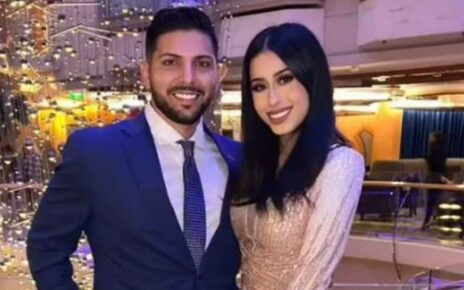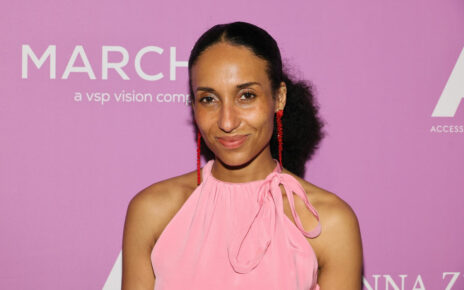ONCE a year the festival of Diwali is celebrated.
The five-day celebration is India's biggest and most important holiday of the year but it is also commemorated all over the world.
What is Diwali?
Diwali, known as the festival of lights, is one of the major religious festivals in Hinduism, Jainism, and Sikhism.
It takes place every year in October and November, with the date changing annually.
In 2023 Diwali will be marked on Sunday, November 12, though the holiday will be celebrated from Friday, November 10, through to Tuesday, November 14.
Over the five days, the festival will celebrate Ramachandra, who is the seventh incarnation of the god Vishnu.
World News

US nuke sub arrives in ‘message to Iran’ after threat to ‘hit America hard’

Israel ‘splits Gaza in two’ as pics ‘PROVE’ weapons stored under hospital

‘Holy grail’ shipwreck with ‘£16bn treasure’ to be raised after 300 years

Putin ‘WILL announce’ 2024 election run as tyrant set to remain in power
Diwali celebrates the "victory of light over darkness, good over evil and knowledge over ignorance".
The main day of Diwali marks when Lord Rama returned to his kingdom of Ayodhya with his wife Sita and brother Lakshmana.
In the Hindu epic Ramayana, Rama, Prince of Kosala, was forced into a 14-year exile with his wife and brother.
Sita was then kidnapped by the demon king Ravana and a war ensued.
Rama was victorious and Sita was reunited with her husband, with the trio then returning to Ayodhya to jubilant citizens and Rama becoming king.
Diwali is known for its bright lights and colourful celebrations and is a time for families and loved ones to come together for worship and feasting.
What are the five days of Diwali?
Dhanteras
Diwali celebrations begin with Dhanteras, also called Dhantrayodashi, on day one, where oil lamps are installed.
On this day, people worship Lord Kubera and Goddess Lakshmi and buy something new.
Considered very auspicious, people purchase gold, silver, clothes, gadgets as a sign of good fortune.
Naraka Chaturdasi (Choti Diwali)
The second day is Choti Diwali – or Naraka Chaturdasi – which is a day of preparing a feast and sweet treats.
Naraka Chaturdasi is also the 14th day of the Kartik month.
According to Hindu tradition and mythology, it is believed that Lord Krishna fought the demon Narakasura and killed him.
On Choti Diwali, people wake up early in the morning, apply aromatic oils and bathe with ritualistic scrubs.
They wear new clothes, light lamps and diyas and offer puja in the evening.
Lakshmi Puja (Diwali)
Day three, Lakshmi Pujan, is the height of the festival when feasts are shared, temples are visited and family is greeted.
People welcome Goddess Lakshmi, the goddess of wealth, who is believed to bless people with luck and prosperity.
Lord Ganesha is also worshipped and people decorate the entire house with diyas, candles, lights, earthen lamps.
Delicious sweets are prepared, gifts are exchanged, and people celebrate the evening with joy, happiness, prayers and laughter.
Govardhan Puja
Day four goes by various names, including Annakut, Padwa, and Govardhan Puja.
On this day, the bond between husband and wife is celebrated – with gifts often given to wives – and people worship Lord Krishna.
It is believed Lord Krishna saved the residents of Mathura from Lord Indra by lifting a mountain named Govardhan.
People make miniature clay and cow-dung effigies symbolising Govardhan and worship them.
They also prepare 56 varieties of vegetarian food and drinks for Lord Krishna as a gesture of gratitude.
Bhai Dooj
The last and final day of Diwali celebrations is called the Bhai Dooj or Bhau Beej, which celebrates the special bond between brothers and sisters.
It is celebrated on the second day of the Shukla Paksha of the lunar calendar.
On Bhai Dooj, sisters put a tilak face markings on their brothers' foreheads and pray for their long and happy life.
Sisters also prepare a luscious feast for their brothers on this occasion and siblings get together and exchange presents, sweets and blessings.
This marks the end of the five-day long Diwali celebrations.
What are some Diwali wishes and greetings?
Greeting somebody over Diwali can be as simple as saying "Happy Diwali".
There are also a few other longer greetings you can say if you wish to:
- "It’s Diwali everywhere, happiness is in the air and wealth forever… And wish everyone out there Happy Diwali!"
- "Let this Diwali burn all your bad times and enter you in good times."
- "Since this is a special occasion when all the family and friends get together, for fun. Wishing a lot of amusement to cheer your days during this festive season. Happy Diwali!"
- "Doubt is like darkness and trust is like a light. There is no way one can destroy light by throwing darkness into it. So, let’s come together and enjoy the festival of lights. Happy Diwali"
- "Diwali is a festival full of sweet memories, a sky full of fireworks, a mouth full of sweets, a house full of diyas, and a heart full of enjoyment! Happy Diwali!"
What is the difference between Diwali and Deepavali?
Diwali and Deepavali are different names for the same festival.
The festival of lights is more commonly known as Diwali, but can also be called Deepavali or Divali.
The names can vary depending on the religion, with Dipavali often mentioned in Jain books.
Source: Read Full Article



